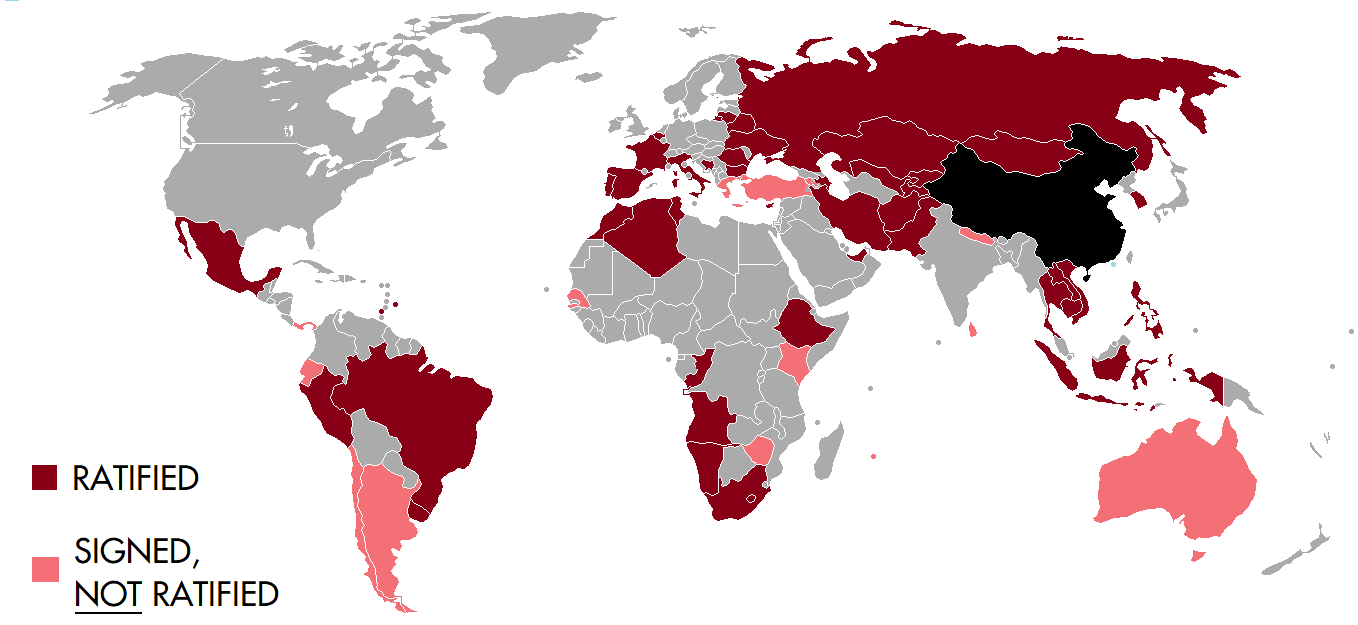China expands system of extradition treaties
On 30 December 2022, mere weeks ago, China, via a decision by its Congress’ Standing Committee, ratified extradition treaties with four more countries reports the China Justice Observer. The countries in question are the Republic of Congo, Kenya, Uruguay, and Armenia. All treaties were signed several years back, pending ratification.
Of those four, Uruguay and the Republic of Congo has already ratified it on their side, thus bringing them now into effect, while Kenya and Armenia still need to ratify the treaties on their side for them to enter into effect.
Today, China has ratified extradition treaties with 45 countries, with another 14 countries where either both or one party need to complete ratification to bring them into effect.
For more on developments on actual extradition cases, see our recent overview covering 2020 to 2022.
In Europe, Turkey and Greece have yet to ratify their treaties, with Greece being the latest country anywhere to have signed such a treaty in 2020, while in Turkey, the horrendous situation in Xinjiang, affecting the Uyghur population, has, analysts say, brought potential Turkish ratification to a halt, for now. The most recent European countries to ratify such treaties are Belgium and Cyprus, whose treaties went into effect in 2020. In 2018, following a State visit by the Austrian President to Beijing, there were discussions of the possibility of signing an extradition treaty, but there has been no further movement on the matter since.
In the Asia-Pacific, Australia long ago signed a treaty with China, but as of the last few years the ratification process has been terminated and is unlikely to move forward. Sri Lanka, Nepal, and Armenia are countries that have signed but not yet ratified extradition treaties with China. The most recent Asian county to ratify such a treaty was Vietnam in 2020.
In Latin- and South America, Argentina, Chile, Ecuador, and Panama have signed but not yet ratified treaties, with Uruguay being the latest country to ratify in 2021.
In Africa, Kenya, Senegal, Zimbabwe, and Mauritius have signed treaties that are still pending ratification, with the most recent country to ratify it, besides the Republic of Congo, being Morocco, in 2021.
This development comes as resistance to cooperation with China on extradition matters is mounting, with cases more often denied and with a slew of countries having suspended similar agreements with Hong Kong following the deterioration of its legal system and judicial independence. Besides the issue of a lack of fair trials in China stands the non-refoulment principle, which makes it illegal to send someone back if they are likely to face torture- or ill-treatment, which also applies to extradition proceedings, as well as deportations.

 The first extensive report on China’s use of extradition requests and how such extradition cooperation undermines the rule of law commitments in the countries that cooperate with them and undermine related treatises and values internationally. It also maps how China abuses INTERPOL as part of extradition-based manhunts and how attempts at extradition often serve political purposes. It also stands as a how-to manual for legal practitioners in best practices for stopping extraditions to China and how such would undermine rule of law commitments.
The first extensive report on China’s use of extradition requests and how such extradition cooperation undermines the rule of law commitments in the countries that cooperate with them and undermine related treatises and values internationally. It also maps how China abuses INTERPOL as part of extradition-based manhunts and how attempts at extradition often serve political purposes. It also stands as a how-to manual for legal practitioners in best practices for stopping extraditions to China and how such would undermine rule of law commitments.